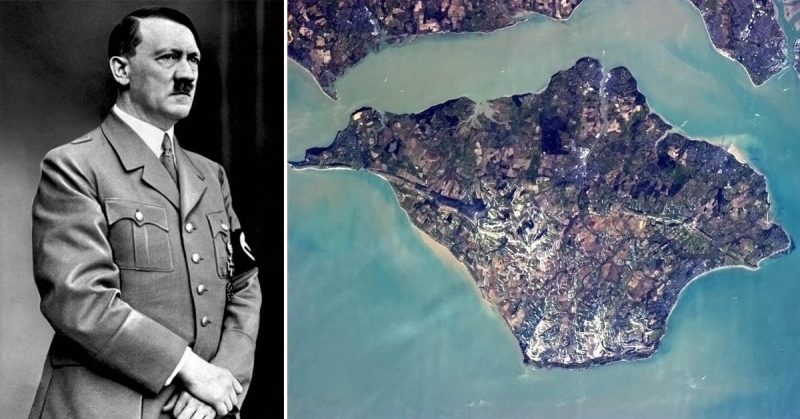Dr. Robert Forczyk, a military historian, analyzed German military records and found that Adolf Hitler had suggested the Nazis invade the Isle of Wight. The move would have given Germany a location from which to bombard Britain.
Forczyk believes that the British would have had difficulty defending the island and would not have been able to take it back from the Germans.
Then, the Germans would have had a base just four miles from the British shore and access to civilian airfields. All of this would have greatly increased the chances of success for Operation Sea Lion, the Nazi plan to invade England.
Hitler was talked out of the plan by naval commanders who overestimated the number of British soldiers and feared the power of British submarines.
A smaller invasion of the Isle of Wight was still considered following the defeat of the Luftwaffe in the Battle of Britain.
“We March Against England,” is Forczyk’s new book where he says that invading the Isle of Wight would have been successful due to the surprise.
He said that taking and holding the Isle of Wight would have offered considerable advantages. These could have increased the feasibility of Operation Sea Lion.
He went on to say that had the Germans deployed artillery on the north side of the Isle of Wight they would be able to shell across the Solent and hit the mainland. This could force the Royal Navy to withdraw from the naval base at Portsmouth.
He also states that the Luftwaffe would have had access to four civilian airfields much closer to England. This would allow the use of the Bf-109 fighter, whose limited range kept it from being effective in England.
Hitler later said that it was a mistake to let his commanders talk him out of the plan.
Forczyk believes that the Germans could have placed 4,000 troops on the island in two days. Recapturing the island would not have been a priority for the British due to commitments elsewhere, The Sun reported.
“In time, the Germans might take the rest of the Isle of Wight by the end of 1940 or simply hold the eastern end of the island as a bargaining chip.”
“In any event, the prevailing military factors suggest that the Germans had the capability to seize at least the eastern half of the Isle of Wight in 1940 and there was very little that the British could do to stop this.”
